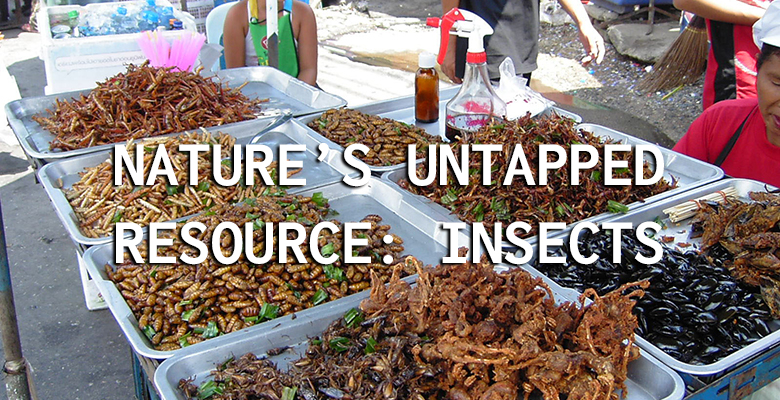
As world food production has problems and shortages due to economic, climate and political problems we have yet to address an issue that we ought to be looking into.
Where will our future food come from?
Well by mass, even if we might find the thought a little repulsive, our largest untapped food resource is in fact insects.
The Western world is not a fan of the thought of consuming insects. This is not as much of an issue for the Far East, with certain insects including scoprions and crickets being on the menu in many Chinese street food vendors.
But in terms of food, insects are a uniquely viable option as a source of food.
Almost 2 billion people around the world are said to actively consume insects as part of their diets.
Less commonly known is that in African countries, insects are the most eaten by natives, with areas such as the Democratic Republic of Congo consuming caterpillars almost year round.
Around 150 to 200 species of insect are consumed in Southeast Asia, many of which are marketed to tourists, but are prepared and combined in different ways to appeal to these travellers.
We are much more sensitive to eating creepy crawlies, despite France having snails as a national dish.
Speaking strictly as a source of protein, insects offer the planet a way to alleviate our global food production deficits. With a higher proportion protein content compared to size than our regular farmyard animals.
Insects offer ‘green’ benefits too, with an insect producing more food compared to the food consumed. Or more simply, they will be fed less but produce lots more.
Many insects can feed on waste, and produce exponentially less greenhouse gases which would help reduce environmental contamination.
Unfortunately in nations where insects are routinely consumed, we have imparted our Western wisdom on the local populace, telling them to use pesticides and fertilisers that kill off vast amounts of insects.
There are also issues with some species transmitting diseases and infections, but this is something that could be remedied with treatment and prevention techniques.
Maybe we won’t see searing scorpion steaks any time soon, but insects could be the key to feeding our growing global populace, with estimates of around 9 billion people by 2050.
